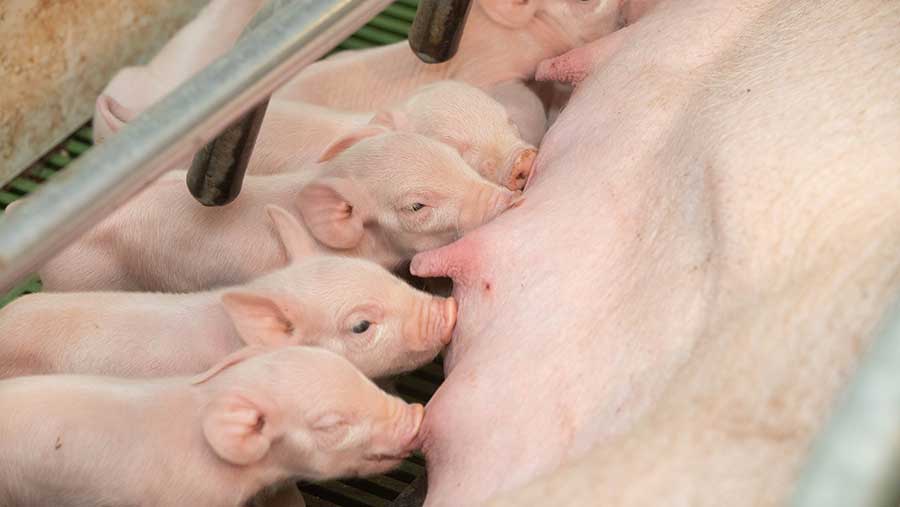New on-farm slaughter method approved to aid piglet cull
 © Tim Scrivener
© Tim Scrivener Defra has approved a new humane method for the killing of piglets as part of efforts to tackle the backlog of pigs on farms.
New regulations will allow the use of a non-penetrative captive bolt device as a killing method for piglets less than 10kg liveweight, subject to specified requirements.
The change in law is being introduced under the Protection of Animals at the Time of Killing (Amendment) (England) Regulations 2022. The regulations will come into force on 3 February and extend to England and Wales but apply only to England.
See also: UK sow herd shrinking as pig sector left to flounder
It will allow for piglets to be killed using the new method on farms and in slaughterhouses.
The same method will also be allowed for the killing of lambs less than 6kg liveweight and kid goats less than 4kg liveweight.
Until now, using a non-penetrative bolt device was allowed only for stunning animals or killing in emergency situations.
Defra said the change was being made in response to supply chain shortages in the pig sector and a shortage of butchering staff, which has resulted in a backlog of more than 170,000 pigs on UK farms.
‘Humane method’
Lord Hodgson, chairman of the House of Lords Secondary Legislation Scrutiny Committee, said: “Defra is introducing the new humane killing method in response to long-standing calls for a change in the law. This should help to address the issues around overstocking of pigs on farms.
“We also believe that while welcoming on-farm slaughter as a means of avoiding what are often long and stressful journeys, any killing done should be conducted as humanely as possible and in a manner that minimises stress to other animals on the farm.”
The National Pig Association (NPA) and the NFU have written to Defra secretary George Eustice seeking an emergency summit with the supply chain to address the crisis in the pig industry.
The NPA is aware of 30,000 sows that have been lost from the English sow herd over the past six months, equating to around 10% of the herd, which it says is likely to be an underestimate.
Additionally, 40 independent pig farms have left the industry.
In the joint letter, NPA chairman Rob Mutimer and NFU president Minette Batters said the situation was “deteriorating” for pig producers and was “clearly not sustainable”.
The current average pork carcass weight is 95kg – 9kg heavier than two years ago. They said it was “totally unacceptable that processors continue to take overweight pigs that they contracted farmers to produce at hugely discounted prices”.
Up to 31 January, the NPA said it knew of only 105 foreign butchers who had arrived or were due to arrive in the UK, using the seasonal temporary visa scheme – despite the government allowing up to 800 butchers to travel and work in the UK for up to six months.
Supermarket help
The letter also urges Defra to encourage retailers to collectively play their part in running marketing campaigns to increase British pork sales and help steer the industry out of the crisis.
Only Morrisons and Waitrose have made such moves so far.
Meanwhile, Yorkshire pig farmer Stephen Thompson has launched a petition on change.org which calls for the removal of Mr Eustice from Defra.
The petition states that Defra is “doing little or nothing to stop the demise of the UK pig industry”.
A Defra spokesman said: “Following our package of support measures, we expect progress to be made on reducing the backlog of pigs on farm in the coming months.
“We continue to work closely with all parts of the sector, have extended the Private Storage Aid scheme until 31 March, and launched a new Slaughter Incentive Payment earlier this month which increases the payment rate to £10 per pig.”
In Scotland, the next round of the Pig Hardship Support Scheme opened on Tuesday (1 February) and will close for applications on 20 February. Full details of the scheme are available on the Scottish government website.
NPA launches member survey on pig crisis
The National Pig Association has launched a new survey for pig producers, to gather further evidence to support its case for action to address the pig industry crisis.
The survey should take no more than five minutes to complete and is available to access on its members’ area.

